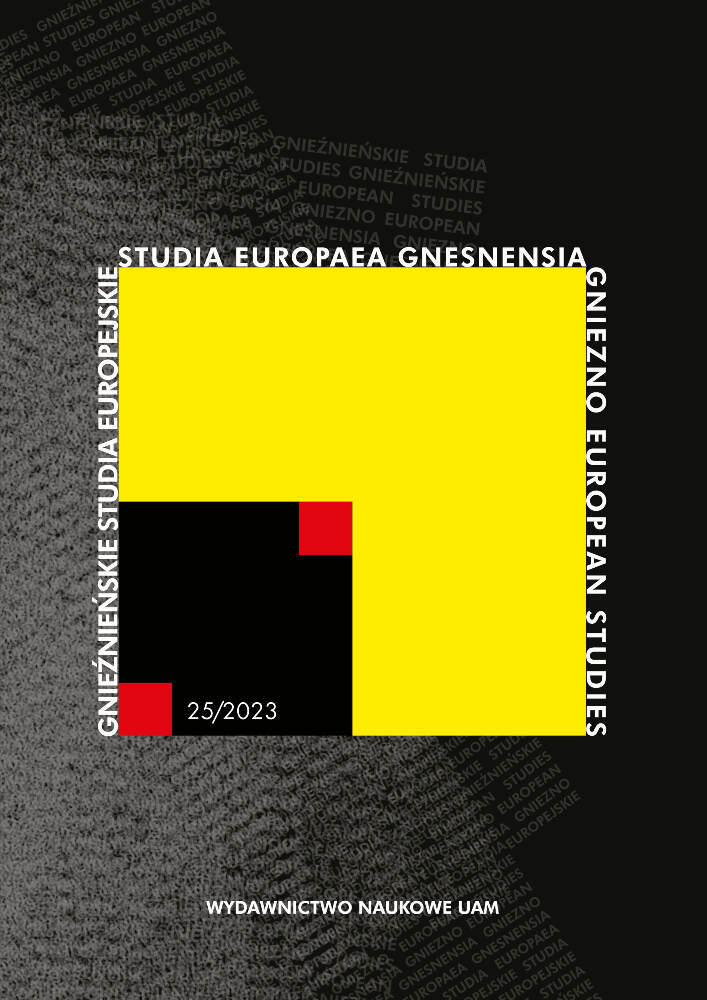Resumen
The article examines the validity of the view which challenges Pliny the Elder’s information concerning the existence of the colony of Flaviopolis on the Thracian Chersonesus, arguing that its name was unusual for a colony. The author discusses situations in which the title of the colony could have been combined with local place names ending in -polis. Furthermore, attention is drawn to the peculiar character of Natural History as a source for toponomastic research and the fact that the latter work also mentions the colony of Flaviobrica, whose name seems interesting given the doubts surrounding the legal status of the Thracian Flaviopolis.
Citas
Anderson J.G.C. 1899, Exploration in Galatia cis Halym. II: Topography, Epigraphy, Galaltian Civilisation, The Journal of Hellenic Studies, 19, s. 52-134. DOI: https://doi.org/10.1017/S0075426900036399
Bertolazzi R. 2020, Naples, Colonia Antoniniana, Ὅρμος. Ricerche di storia antica, 12, s. 109-130. Eck W. 1975, Die Claudische Kolonie Apri in Thrakien, Zeitschrift für Papyrologie und Epigraphik, 16, s. 295-299.
Fantar M., Ben Slimane W., Spanu P.G., Zucca R. 2015, Colonia Iulia Neapolis (Africa Proconsularis). Nuove ricerche archeologiche, [w:] P. Ruggeri (red.), L’Africa romana. Momenti di continuità e rottura: bilancio di trent’anni di convegni L’Afica romana, Sassari, s. 483-492.
Galsterer-Kröll B. 1972, Untersuchungen zu den Beinamen der Städte des Imperium Romanum, Epigraphische Studien, 9, s. 44-145.
Galsterer-Kröll B. 1975, Zu den spanischen Städtelisten des Plinius, Archivo Español de Arqueologia, 48, s. 120-128.
García Alonso J.L. 2006, Briga Toponyms in the Iberian Peninsula [online]. eKeltoi: Journal of Interdisciplinary Celtic Studies [dostęp: 2022-10-28]. Dostępny w Internecie: <https://dc.uwm.edu/cgi/viewcontent.cgi?article=1032&context=ekeltoi>.
Jones A.H.M. 1971, The Cities of the Eastern Roman Provinces, Oxford.
Kahrstedt U. 1954, Beiträge zur Geschichte der thrakischen Chersones, Baden–Baden.
Kienast D. 2004, Römische Kaisertabelle. Grundzüge einer römischen Kaiserchronologie, Darmstadt. Kolendo J. 1992, Les noms dynastiques de villes. Philippe l’Arabe et Philippopolis de Thrace et d’Arabie, Index. Quaderni camerti di studi romanistici/International Survey of Roman Law, 20, s. 51-55.
Kołoczek B.J. 2020, Wprowadzenie. Palcem po mapie dookoła świata, [w:] Gajusz Juliusz Solinus, Zbiór wiadomości godnych podziwu albo Polihistor, tłum. i oprac. B.J. Kołoczek, Kraków, s. 11-75.
Levante E. 1990, The Coinage of Selinus in Cilicia, The Numismatic Chronicle 150, s. 226- 233. Levick B. M. 2014, Faustina I and II. Imperial Women of the Golden Age, Oxford.
Levick B. 1967, Roman Colonies in Southern Asia Minor, Oxford. Levick B. 2017, Vespasian, London-New York. DOI: https://doi.org/10.4324/9781315707938
Lozanov I. 2015, Roman Thrace, [w:] J. Valeva, E. Nankov, D. Graninger (red.), A Companion to Ancient Thrace, Oxford, s. 75-90. DOI: https://doi.org/10.1002/9781118878248.ch7
Mackie N.K. 1983, Augustan Colonies in Mauretania, Historia: Zeitschrift für Alte Geschichte, 32, s. 332-358.
Mitchell S. 1979, Iconium and Ninica: Two Double Communities in Roman Asia Minor, Historia: Zeitschrift für Alte Geschichte, 28, s. 409-438.
Mommsen T. 1885, Römische Geschichte, 5, Berlin.
Mrozewicz L. 2015, Flavische Städtegründungen auf dem Balkan, [w:] G. von Bülow (red.), Kontaktzone Balkan. Beiträge des internationalen Kolloquiums „Die Donau-Balkan-Region als Kontaktzone zwischen Ost-West und Nord-Süd” vom 16.-18. Mai 2012 in Frankfurt a. M., Bonn, s. 151-163.
Mrozewicz L. 2012, Urbanizacja flawijska, [w:] L. Mrozewicz (red.), Studia Flaviana II, Poznań, s. 65-96.
Picard Ch., Reinach A.J. 1912, Voyage dans la Chersonèse et aux îles de la mer de Thrace, Bulletin de Correspondance Hellénique, 36, s. 275-352. DOI: https://doi.org/10.3406/bch.1912.3151
Poghirc C. 1989, Considérations chrono-géographiques sur l’oscillation A/O en Thrace et en Daco– Mésien, [w:] J. Best, N.M.W. de Vries (red.), Thracians and Mycenaeans. Proceeding of Fourth International Congress of Thracology. Rotterdam 24-26 September 1984, Leiden-Sofia, s. 296-306. DOI: https://doi.org/10.1163/9789004673380_026
Robert L. 1948, Villes de Chersonese et la Thrace, Hellenica, 5, s. 35-58.
Ruiz Gutiérrez A. 1997/1998, Flaviobriga, puerto comercial entre Hispania y la Galia: estudio del comercio de terra sigillata a través de un lote de Castro Urdiales (Cantabria), Aquitania: une revue interrégionale d’archéologie, 15, s. 147-166. DOI: https://doi.org/10.3406/aquit.1997.1256
Salomies O. 2001, Honorific inscriptions for Roman senators in the Greek East during the Empire: some aspects (with special reference to cursus inscriptions), [w:] O. Salomies (red.), The Greek East in the Roman Context: Proceedings of a Colloquium Organised by the Finnish Institute at Athens, May 21 and 22, 1999, Helsinki, s. 141-187.
Syme R. 1969, Pliny the Procurator, Harvard Studies in Classical Philology, 73, s. 201-236. Vittinghoff F. 1952, Römische Kolonisatıon und Bürgerrechtspolitik unter Caesar und Augustus, Wiesbaden. DOI: https://doi.org/10.2307/311156
Włoskowicz W. 2020, Nazwy austro-węgierskich jednostek wojskowych. Studium polityki nazewniczej z zakresu chrematonimii wojskowej, Onomastica, 64, s. 121-148. DOI: https://doi.org/10.17651/ONOMAST.64.11
Włoskowicz W. 2021, Nazwy własne w polskim systemie szkolnictwa wyższego i nauki. Studium polityki nazewniczej, Folia Onomastica Croatica, 30, s. 219-237. DOI: https://doi.org/10.21857/yrvgqte1l9
Zahrnt M. 1988, Vermeintliche Kolonien des Kaisers Hadrian, Zeitschrift für Papyrologie und Epigraphik, 71, s. 229-249.
Licencia
Derechos de autor 2023 Marek Jurkowski

Esta obra está bajo una licencia internacional Creative Commons Atribución 4.0.

